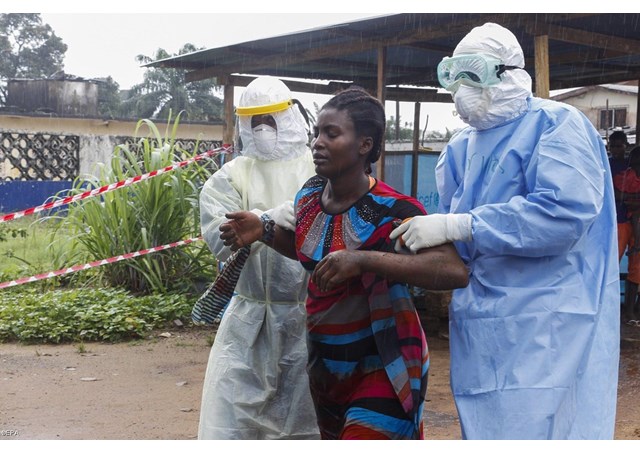
US ambassador to Holy See talks about lessons from the current Ebola outbreak

(Vatican Radio) As the death toll and inflection rate climbs each day from the current Ebola outbreak in West Africa, alarm bells are continuing to ring across the world concerning the gravity of the epidemic. The United States recently announced it was sending in 3,000 troops and equipment to help contain the spread of the deadly virus. But the U.N. has warned that the international response will need to be 20 times greater than it is now.
Kenneth Hackett is the U.S. ambassador to the Holy See and a former President of Catholic Relief Services and began his career with them in Sierra Leone. In an exclusive interview with Susy Hodges, he gives his assessment of the current Ebola outbreak, the obstacles being faced and the lessons we should be learning from our response so far to this epidemic.
Listen to the full interview with Ambassador Kenneth Hackett:
Asked whether he believed the international community was perhaps too slow to wake up to the gravity of the current epidemic, Ambassador Hackett agreed that this was the case. Happily, he said, the international response, including that of the U.S., is now “robust” and says that ultimately education and increasing awareness will be “key” to bringing this outbreak under control and defeating it. Another key objective, he added, is “to build up the public health care system in the affected countries so there’s a lasting contribution.” He said the Catholic Church is playing an important role in trying to raise awareness of Ebola and caring for its victims, along with its charitable organization, Caritas Internationalis.
“The Church is doing some wonderful things , Caritas has stepped up full-scale, using the parish structure to get messages out in the (affected) countries but it’s still not enough.”
Although Ebola or other similar diseases have been around for quite a time, the U.S. ambassador said one of the reasons why the virus has spread so quickly in the current outbreak is because populations are far more mobile than they were in the past.
When asked if he thinks the U.S. would be prepared to step up further its response if the Ebola outbreak were to continue to worsen dramatically, Ambassador Hackett said he believed so because “this is a major, major threat” to the entire international community.
Finally, as for the lessons to be learnt from the past and current outbreaks of Ebola, the U.S. envoy said this can be summed up very succinctly: “Move quickly, we cannot wait.”
| All the contents on this site are copyrighted ©. |


